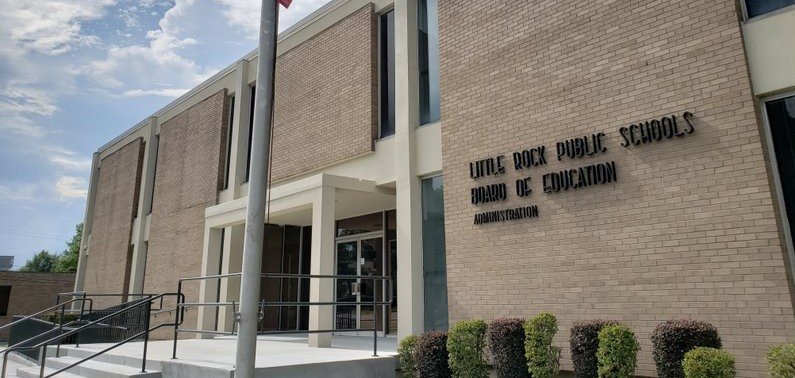The Little Rock School Board on Thursday approved 2023-24 salary schedules for all employees, setting the salary for a beginning teacher with a bachelor's degree at $50,000, as required by the newly passed Arkansas LEARNS Act.
The district's current beginning salary for a teacher with a 190-day contract is $45,500.
The new salary schedule for teachers further provides $2,000 increases for the district's more veteran teachers who already earn $50,000 or more a year -- also a provision of the state law.
The Little Rock schedule, unlike some new schedules in other districts in the wake of the new law, differentiates salaries based on years of experience and education credits.
The capital city district's schedule includes a yearly experience increment of 1.81% and a 2% increase to those teachers who acquire additional education hours above a bachelor's degree. However, those percentages for experience and education steps are smaller than the current percentages of 2% for experience and 2.5% for additional education as a way to make what would be a $12 million addition to the salary plan more affordable, Kelsey Bailey, the district's deputy for business operations, said Thursday night.
A second-year teacher in the district with a bachelor's degree will earn $50,905. A first-year teacher with a master's degree will earn $53,060. The top salary for a teacher with 21 years of experience and a master's degree plus 30 hours will receive $79,028 for a 190-day contract.
Additionally, the base salary for the district's classified employees will increase by 2%.
In response to questions from board members Evelyn Callaway and Ali Noland, Bailey said the state is expected to provide the district with about $4.4 million to cover the cost of ensuring that all teachers make at least $50,000 as well as the $2,000 increases for those making more than $50,000.
The actual cost to the district will be greater than the state funding because of the education and experience steps, Bailey said, adding that the district is using some of its resources -- "putting some of our skin in the game" -- to pay for the education and experience step.
The pay plan proposals for teachers and support staff were approved earlier by the district's personnel policies committees for the employee groups.
The School Board voted 7-1 for the pay plans, with board member Sandrekkia Morning opposing it.
Bailey and Superintendent Jermall Wright told the board that the district must do everything required by the Arkansas LEARNS Act to be eligible for the new state aid.
Wright said state officials are "looking" to ensure district compliance with the omnibus Act 237 of 2023.
Earlier Thursday, the board received draft revisions to the superintendent's contract that includes performance targets as called for by the new state law. The proposed targets call for the district chief executive to reduce the number of schools receiving letter grades of D or F by 25% by the end of the 2023-24 school year, by 30% by the end of the 2024-25 school year, and by 35% by the end of the 2025-26 school year.
The draft contract also calls for the district's four-year graduation rate for all students to increase by 1% each school year from a baseline of 80% in 2022 to a goal of 84% by 2026.
Thirdly, the draft language calls for the graduation rate for all high schools receiving the letter grade of a C, D, or F to not fall below 80%.
The School Board is expected to act on the revised superintendent's contract later.
Arkansas lawmakers earlier this year adopted the 145-page Arkansas LEARNS Act that Gov. Sarah Huckabee Sanders had proposed as a way to revamp prekindergarten-through-12th grade education.
In addition to the salary and superintendent contract requirements, Sanders' signature law authorizes the establishment of transformation contracts between poorly performing public school districts and third-party organizations such as charter schools.
It expands over the next three school years the use of taxpayer money for private school tuition and supplies, requires the retention of some third graders who struggle to read, and mandates 75 hours of community service as a requirement for high school graduation.
It also repealed the Teacher Fair Dismissal Act and the Public Employees Fair Hearing Act.
LEARNS stands for literacy, empowerment, accountability, readiness, networking and safety.
